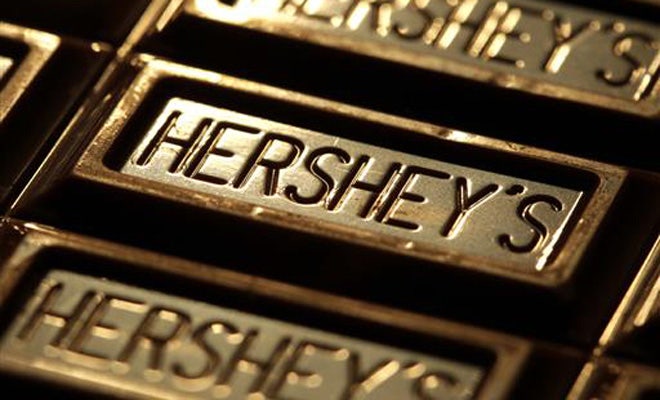Milton Snavely Hershey, a name synonymous with chocolate and philanthropy, was born on September 13, 1857, in Derry Township, Pennsylvania. Hailing from a German-speaking Mennonite background, Hershey grew up in a modest environment that would later fuel his ambition and desire to bring wealth and goodwill to America. According to his biography in the Candy Hall of Fame, into which he was inducted in 1972, Hershey was described as “the rarest of men — both a dreamer and a builder.” This dual persona would shape his remarkable journey as he founded the Hershey Chocolate Company and constructed the Milton Hershey School, two institutions that remain impactful in American society today.
Hershey’s educational journey was brief; he received only a fourth-grade education before his father compelled him to begin working as an apprentice to a printer. Even at a young age, however, Hershey’s interest in the candy industry was evident. He opened his first candy shop in Philadelphia in 1876, but after six years of operation, it ultimately failed. Despite this setback, Hershey’s entrepreneurial spirit did not wane. He would attempt a variety of candy-making ventures in other cities, yet it wasn’t until he returned to Lancaster, Pennsylvania, that he struck gold. In 1886, he launched the Lancaster Caramel Company and, by 1894, introduced a subsidiary known as the Hershey Chocolate Company.
One of the pivotal moments in Hershey’s career occurred when he remarked to a colleague, “Caramels are a fad; chocolate is permanent.” This insight proved crucial as he prepared to revolutionize the candy industry. While chocolate had been enjoyed for centuries, Hershey aimed to create a sweeter and more affordable product; thus, he pioneered a version of milk chocolate that used fresh milk and mass production techniques, distinguishing his product from previously existing versions made by Swiss confectioners using powdered milk. This innovation fundamentally altered the way chocolate was made and consumed, establishing Hershey as a formidable force in the confectionery business.
In the year 1900, Hershey rolled out the first Hershey’s Milk Chocolate bars, which immediately gained popularity. As a result, he sold off the caramel company, focusing entirely on his chocolate enterprise. The town of Hershey, Pennsylvania, was founded in 1903, with Hershey Park opening just a few years later in 1906. Following this, Hershey’s Kisses made their debut in 1907. The company continued to flourish, especially during World War II, when the Hershey Chocolate Company found itself at the forefront of the heavily rationed American chocolate market.
Hershey’s products became a staple in the U.S. military’s field rations, providing soldiers with much-needed energy and calories in the form of chocolate bars that were designed to withstand the heat of tropical climates. The chocolate ration bars, in particular, became symbols of American goodwill as U.S. troops liberated towns across Europe and Asia. American GIs were often seen sharing their chocolate with war-ravaged children and families, fostering feelings of camaraderie and support during difficult times. This act of kindness led to the emergence of a black market for American chocolate in post-war Germany, reflecting the widespread desire for Hershey’s treats despite economic hardships.
Today, Hershey’s legacy continues to thrive, with the company reporting $8.97 billion in annual sales as of 2021, marking an impressive increase of over 10 percent compared to the previous year. The Candy Hall of Fame spotlighted Milton Hershey’s exceptional ability to establish his chocolate business at precisely the right moment in history. His belief in the importance of wealth’s responsibility and commitment to improving the quality of life in the town he founded ensures that the Hershey Company, the surrounding community, and the Milton Hershey School will remain living testaments to his vision and philanthropy for generations to come. Through innovation and generous contributions, Milton Hershey has left an indelible mark as both a successful businessman and an extraordinary humanitarian.



